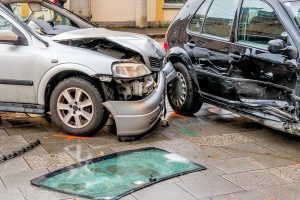You might have heard that your car was totaled, but do not know what it means. If your insurance company says that your car is “totaled” or “totaled in an accident”, it means it will cost more than just the value of the car to fix it.
The insurance industry’s definition of “totaled”
The insurance industry’s definition of “totaled” is: “A total loss where the cost of repairs or reconstruction would be equal to or greater than 75 percent of the actual cash value of the vehicle before it was damaged.”
In other words, if your car’s damage is worth more than or equal to its actual cash value (ACV), then it’s considered a total loss.
The actual cash value (ACV) is what your car was worth right before it got wrecked. That ACV can often be much lower than what you paid for your car—especially if it’s a used vehicle.
If your insurer decides that they need to take back their money because they don’t think their investment in repairing your vehicle will cover more than 75 percent of what they paid for it, they’ll declare it “totaled”, make sure all outstanding liens against the title are satisfied and then pay off any outstanding loans on your policy.
If your insurer totals your car, your car is probably really wrecked.
In most cases, this means that an insurance claim will be paid out and then the vehicle will be scrapped.
The car has been declared unsafe for use on public roads and/or needs extensive repairs before being used again. In other words, it can’t legally be driven in its current condition.
The cost of repairing or replacing parts of the vehicle would exceed 75 percent of its market value prior to receiving damage (this includes cosmetic damage). In other words, even if you could afford the parts and labor at a mechanic shop, doing so wouldn’t put enough worth in your car after it’s done.
Also, the value of damaged cars often decreases quickly after an accident.
How insurers decide whether to total a car
It depends on what kind of damage the car has sustained. If the engine is damaged, for example, the insurer will probably total the vehicle because it’s not cost-effective to fix it.
However, if only cosmetic damage has occurred—like a few dents—the insurer may still pay for repairs so that you can sell your totaled car as a repairable vehicle (or “salvage” car) at auction.
In general terms, the insurer takes into account several factors when calculating how much money they’ll offer as compensation for your totaled car such as:
- How much bodily injury liability coverage have you sustained.
- Cost of the car that was damaged.
- The type of damage (i.e., cost of repairs, how long it will take to fix).
How to get the most money from insurance for a totaled car
- Inform the insurer about the accident immediately
- Get your mechanic to inspect the car.
- Get a cost estimate for the damages.
- Get a second opinion.
It’s worth asking around and comparing prices if you don’t want to go with your insurance company’s appraiser, but make sure they’re a reputable organization and are not just trying to rip you off with their own inflated numbers.
Also, make sure that the quote is based on recent sales prices for cars similar to yours rather than some outdated figure which could skew results toward undervaluation.
Conclusion
In this article, we explored what it means when a car is totaled. We described how the insurance industry defines an accident as “totaled” and how they decide whether or not to total your car. Finally, we discussed ways that you can get compensation for lost value after an accident even if your insurer totals your vehicle.
Have more questions? Call us on 012800700 or email for professional advice.












